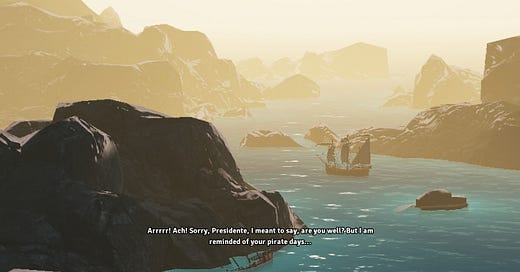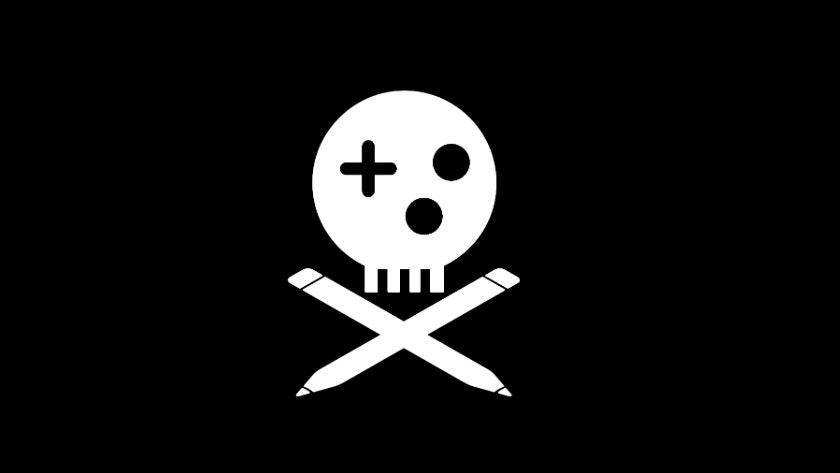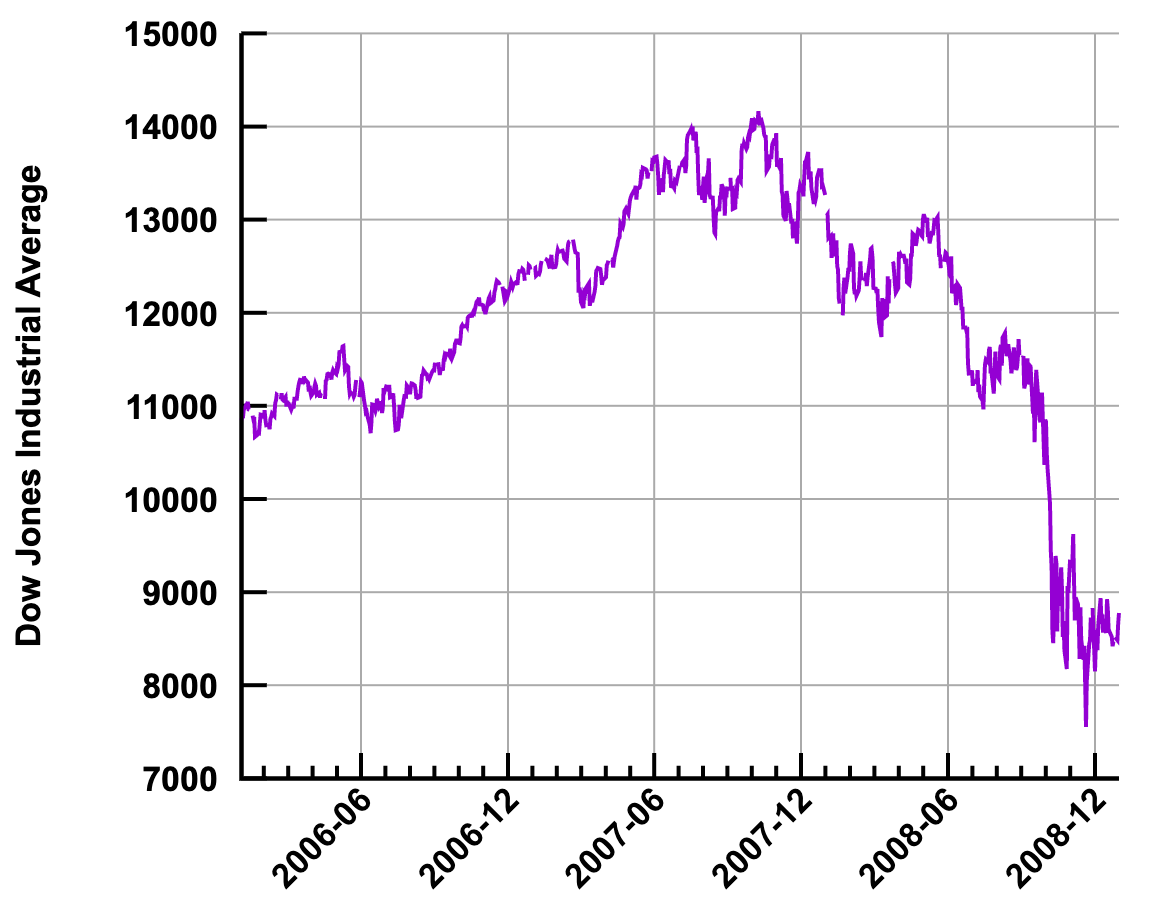Issue 2.7: The Dismal Age of Piracy
An Economic Analysis of Tropico and Port Royale’s Pirate Age Simulations
Table of Contents (Vol. 2, Issue 7: Sunday, Mar. 20, 2022)
Summary & Housekeeping
Feature: “The Dismal Age of Piracy” (~30 minute read)
Food for Talk: Discussion Prompts
Further Reading
Game & Word-of-Mouth
Footnotes
Summary
Today, we’ll take a look at pirate economics as seen in games like Tropico and Port Royale, and see how well those games simulate the pirate economies of yore.
Housekeeping
Hello, subscribers! I have good news, and seemingly-bad-but-actually-good news. Let’s start with the latter.
News #1: There will be no new issue of Game & Word next Sunday, March 27, 2022. Yes, I know it’s a bummer, but it’s for a good reason. I’ll be at the Game Developers Conference (GDC) all week, pitching my newsletter and meeting new sources. As such, I most likely won’t have time to write a whole new feature.
Who knows, maybe I will! But it’s a long shot, so don’t count on it. I want to properly set expectations, so you’re not caught off guard if nothing shows up next Sunday.
BUT… to make it up to you, if any video is available by publishing date, I’ll send you a recording of the panel I’m moderating on Thursday instead. If you’re in San Francisco that evening, stop by and say hi! We’ll all talk about metaverses, VR, and other cool stuff. And there’ll be a hell of a party afterward. Here’s the link to purchase tickets, but hurry—it’s almost sold out!
In any case, Game & Word will resume normal publishing on Sunday, April 3, 2022 (the week after next).
News #2: I mentioned this last week, but in case you missed it, you can now read Game & Word on the new Substack app for iPhone. Don’t worry, this is the last time I’ll promote it.
With the app, you’ll have a dedicated Inbox for Game & Word and any other Substack newsletters you subscribe to. New posts will never get lost in your email filters, nor stuck in spam, ever again. You’ll no longer see that annoying “Message Truncated” Gmail message. Comments and multimedia will all work seamlessly. I’ve been using it for over a week now, and it really has greatly upgraded my reading experience. I hope it will be for you, too. That’s why I’m plugging it.
The Substack app is currently available for iOS. If you don’t have an Apple device, you can join the Android waitlist here.
There, I’ll shut up about it now.
~Jay
Previous Issues:
Feature: The Dismal Age of Piracy
🚨🚨🚨SPOILER ALERT!!! 🚨🚨🚨
This post contains light spoilers for a particular mission in Tropico 6. You've been warned!
⚠️⚠️⚠️CONTENT WARNING⚠️⚠️⚠️
This article contains discussions of slavery and imperialism. If these topics upset you, please proceed with caution. Section(s) discussing these topics will be clearly labeled under the subhead.
Economics is a funny discipline. To a non-numbers-oriented person,1 it appears intimidatingly daunting to even begin studying. Nobody seems to understand it2—not just laypeople, but also economists. You could argue equally well for its usefulness and uselessness, perhaps even in the same breath.3 People consider economists smart and prestigious, but (especially in today’s post-Great Recession era) also either clueless4 or in the wealthy’s pockets.
If you’re wondering why the field and its experts have such a bad rep, here’s why:
Nevertheless, dismissing the field outright wouldn’t be fair, either. For as often as economists are wrong, the so-called “dismal science” is useful in providing a model that helps us visualize and predict (however imperfectly) how money moves through society.
These models become more vital the larger and more complex society becomes—and in the 21st Century, human civilization operates on an unprecedentedly huge scale that a medieval time traveler would find unfathomable, and even people today have trouble wrapping their heads around. And “supply-side” snake oil aside, fiscal policy based on economic theory has had a generally good track record of keeping our (surprisingly fragile) national and global economies afloat. Even if just barely.
In addition, advances in fields like behavioral economics5 and neuroeconomics6 are helping to plug the gaps and correct the shortcomings of traditional economic models.
But economics isn’t just useful for understanding today’s economy. Nor do the stakes of its predictions have to be so high as when planning our personal finances, or when the Fed considers raising interest rates. We can also use it to understand past economies… and even digital economies.
This brings me to this week’s two series: Tropico: a Caribbean-themed city-building simulation franchise that’s sometimes based in the Pirate Age; and Port Royale: a Caribbean-set trading simulation franchise that’s always based in the Pirate Age.
Since the games from both of these series are simulated economies, I’d like to see how certain economic principles play out across them.







